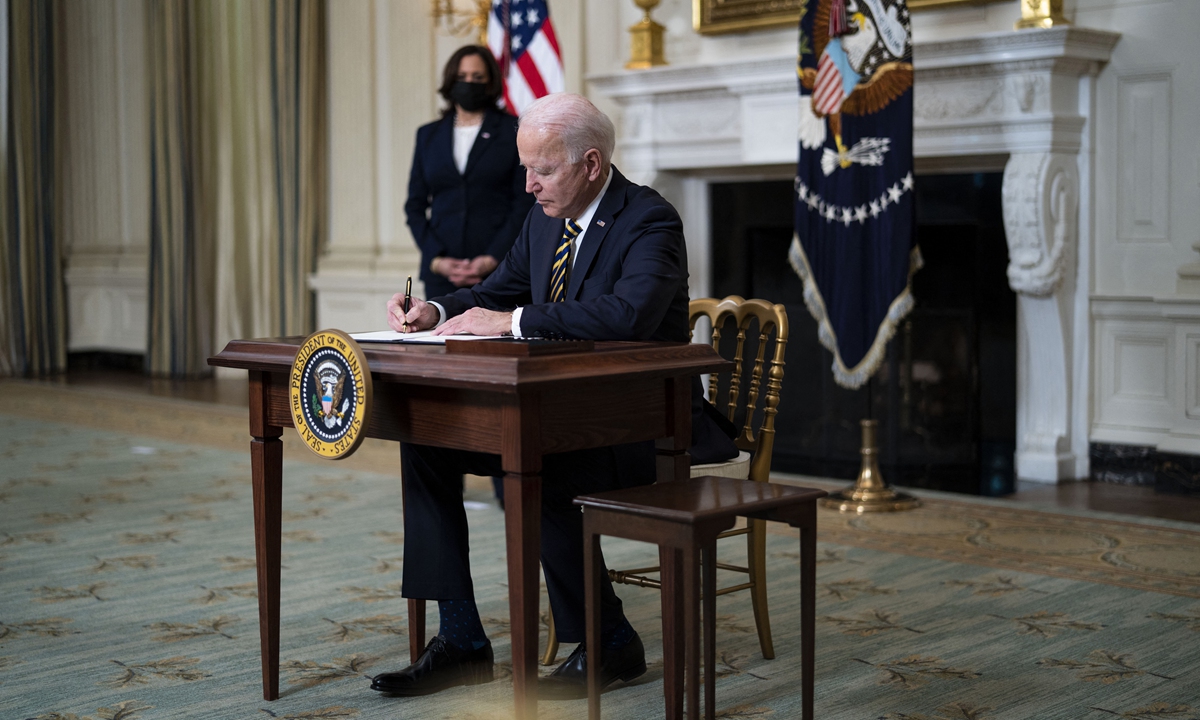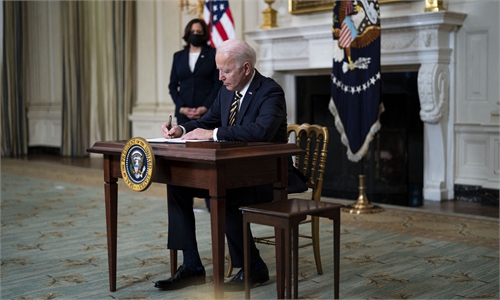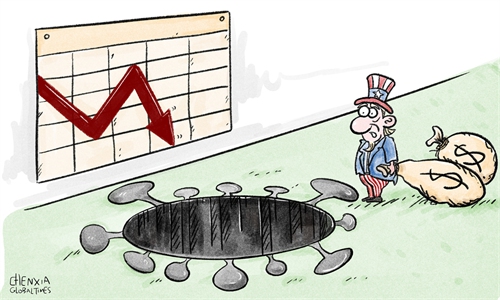Experts downplay fears of imported asset bubbles after Senate passes Biden’s $1.9t relief bill

US President Joe Biden signs an Executive Order on the economy on Wednesday in the White House. Photo: AFP
The US Senate passed a sweeping $1.9 trillion pandemic relief bill on Saturday, which will further swell its ballooning national debt.
Considering the relief stimulus package as largely a rescue effort to help US families and businesses and an enabler of US economic rebooting, experts downplayed fears of imported asset bubbles on the part of China. Meanwhile, there have been calls to avoid sudden policy shifts as a means of risk prevention.
The House is scheduled to vote on the Senate's version of the relief plan on Tuesday, readying the massive bill - including $1,400 stimulus checks to most Americans - to be available as soon as this month, US media said on Sunday.
The fresh round of stimulus apparently adds to concerns over the US' staggering government debt. It was only in December that former president Donald Trump signed into law a $2.3 trillion coronavirus aid bill, averting a government shutdown.
Following a new round of stimulus plan, some observers warned about the repercussions of the extremely loose monetary policies that the US, among other developed economies, has adopted, which has stoked concerns about overheating in their financial markets.
Such woes coincide with big swings in the US stock market amid a surge in the 10-year US Treasury bond yield, which sent panic through global markets, including the A-share market.
The $1.9 trillion rescue package is intended to aid US families and businesses, giving the US economy a shot in the arm to help it recover from the impact of the epidemic, Tan Yaling, head of the China Forex Investment Research Institute, told the Global Times on Sunday.
The US stock market's performance is essentially an indication of corporate earnings prospects, Tan said, and the US economic rebound is likely to underpin its equity market.
It's less likely that the new round of aid would channel asset bubbles into the A-share market, she noted, citing the $2.3 trillion spending plan that hasn't turned out to be a booster for A shares.
While the soaring bond yield seems to have been an irritant for global markets, it means higher returns for China's US bond holdings, according to Tan.
Meanwhile, as Zhang Lianqi, a member of the Chinese People's Political Consultative Conference (CPPCC) National Committee and deputy head of the Chinese Tax Institute, put it, the country should maintain fiscal policy continuity and stability in 2021.
In a speech at the second plenum of the fourth session of the 13th CPPCC National Committee on Sunday, Zhang said it will still take time for China's economy to regain vitality after the epidemic, and conditioning efforts are required for the economy's recovery, thereby avoiding a sudden turn on policy.
In a research note sent to the Global Times, UBS chief China economist Wang Tao wrote that "we believe a credit slowdown will be mainly driven by lower liquidity, and tighter prudential regulations and supervision, including on shadow credit and internet finance, not by rate hikes."


